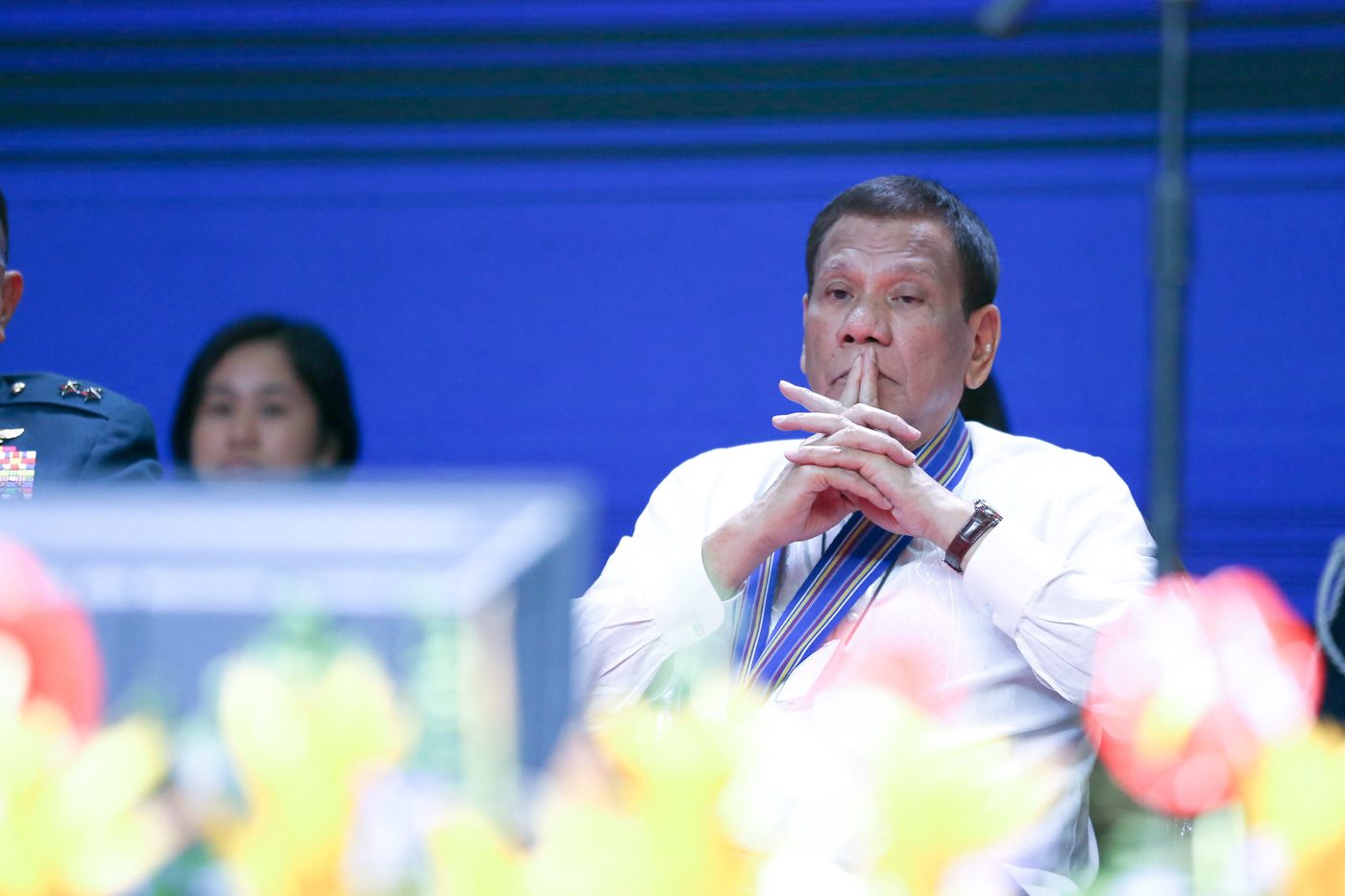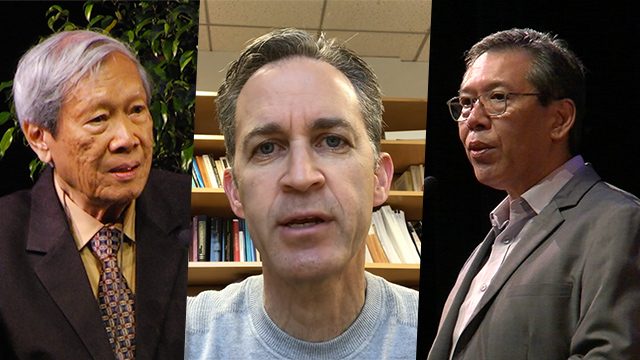SUMMARY
This is AI generated summarization, which may have errors. For context, always refer to the full article.

MANILA, Philippines – A phenomenon called lawfare or warfare using law is a global pandemic that has reached the Philippines, according to experts from different fields here and in other countries who came together on Friday, February 21, for a forum at De La Salle University.
Lawfare, a portmanteau of “law” and “warfare,” refers to the misuse of laws and legal systems to go after perceived enemies.
Marine Mesure, general secretary of France Insoumise Party, said a petition against lawfare that they started in France had gained the support of 35 other countries which want to find solutions to stop lawfare in their nations.
In the Philippines, human rights lawyer and former opposition senatorial candidate Chel Diokno said recent lawfare attacks had been on Senator Leila de Lima, who is in jail for drug charges, and former senator Antonio Trillanes IV, who is facing 3 sedition-related charges under the administration of President Rodrigo Duterte.
Six justice of the Supreme Court dissented to De Lima’s jailing. Now-retired senior associate justice Antonio Carpio called it “one of the grossest injustices” for having no physical evidence of drugs.
Trillanes, meanwhile, was nearly arrested by the military for revived rebellion charges. This was after Duterte took away his amnesty, claiming his administration suddenly couldn’t find his application form, which was the basis for the approval by then-president Benigno Aquino III.
“The Duterte administration is using all sorts of weapons: guns, drug lists, trolls. But the biggest weapon they’re wielding is the law,” said Diokno.
In the world
De Lima said the most fatal lawfare she had seen so far were the deaths from the novel coronavirus that originated in Wuhan, China. The Chinese government has been criticized for keeping the virus under wraps for much too long, limiting responses and exposing the world to the epidemic.
“When people saw how laws on the so-called spread of rumors were used to prevent timely warnings from being disseminated to the populace and how it resulted in thousands of deaths…people realized how the weaponization of the law doesn’t serve their purpose,” said De Lima in a speech read by her brother Vicente during the forum.
United Nations Special Rapporteur on Freedom of Opinion and Expression David Kaye highlighted civil suits of libel and defamation around the world, which, he said, were meant to “bankrupt those who are speaking, debating or raising criticism of the government.”
Libel in the Philippines is a criminal offense, but there have been calls to decriminalize it, with the compromise that civil damages would be imposed on those convicted.
But Kaye said civil suits would still be weapons of lawfare.
“That is extremely concerning not only because it allows ministers and others to bring suit to limit speech and debate but also because the penalties often seek to bankrupt those who are speaking or debating or raising criticism of government,” said Kaye through a video shown during the forum.

The hope
Former University of the Philippines College of Law dean Pacifico Agabin said lawfare was a patent of dictators, and that the judiciary would be the “referee” that should keep its independence.
“The playbook of dictators is always to capture the referee and, in a democratic system, it is the judiciary that plays the referee,” said Agabin.
Agabin said the law “is always double-bladed, it can be used for good and it can be used for evil.”
De Lima said that while the pandemic of lawfare is alarming, the situation is “far from irreversible.”
Agabin said the hope lies in the people, and their willingness to resist and fight for freedoms.
“Liberty relies in the hearts of men and women, when it dies there, no court can save it, no constitution, no law, no court can even do much to help it, so today let not liberty die in the hearts of men and women,” said Agabin. – Rappler.com
Add a comment
How does this make you feel?
There are no comments yet. Add your comment to start the conversation.